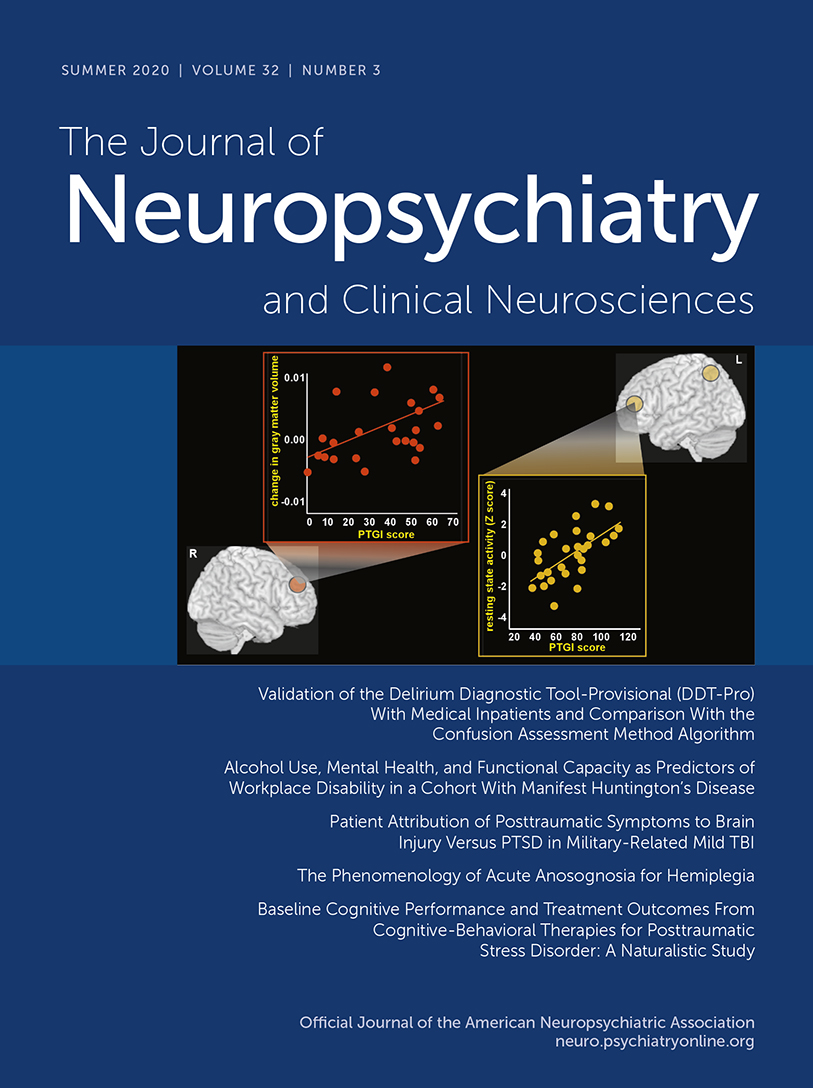Baseline Cognitive Performance and Treatment Outcomes From Cognitive-Behavioral Therapies for Posttraumatic Stress Disorder: A Naturalistic Study
Abstract
Objective:
Approximately 5%–20% of U.S. troops returning from Iraq and Afghanistan have posttraumatic stress disorder (PTSD), and another 11%–23% have traumatic brain injury (TBI). Cognitive-behavioral therapies (CBTs) are empirically validated treatment strategies for PTSD. However, cognitive limitations may interfere with an individual’s ability to adhere to as well as benefit from such therapies. Comorbid TBI has not been systematically taken into consideration in PTSD outcome research or in treatment planning guidance. The authors hypothesized that poorer pretreatment cognitive abilities would be associated with poorer treatment outcomes from CBTs for PTSD.
Methods:
This study was designed as a naturalistic examination of treatment as usual in an outpatient clinic that provides manualized CBTs for PTSD to military service members and veterans. Participants were 23 veterans, aged 18–50 years, with combat-related PTSD and a symptom duration of more than 1 year. Of these, 16 participants had mild TBI (mTBI). Predictor variables were well-normed objective tests of cognitive ability measured at baseline. Outcome variables were individual slopes of change of the PTSD Checklist for DSM-5 (PCL-5) and the Clinician-Administered PTSD Scale for DSM-5 (CAPS-5) over weeks of treatment, and of pretreatment-to-posttreatment change in PCL-5 and CAPS-5 (ΔPCL-5 and ΔCAPS-5, respectively).
Results:
Contrary to prediction, neither pretreatment cognitive performance nor the presence of comorbid mTBI predicted poorer response to CBTs for PTSD.
Conclusions:
These results discourage any notion of excluding patients with PTSD and poorer cognitive ability from CBTs.



